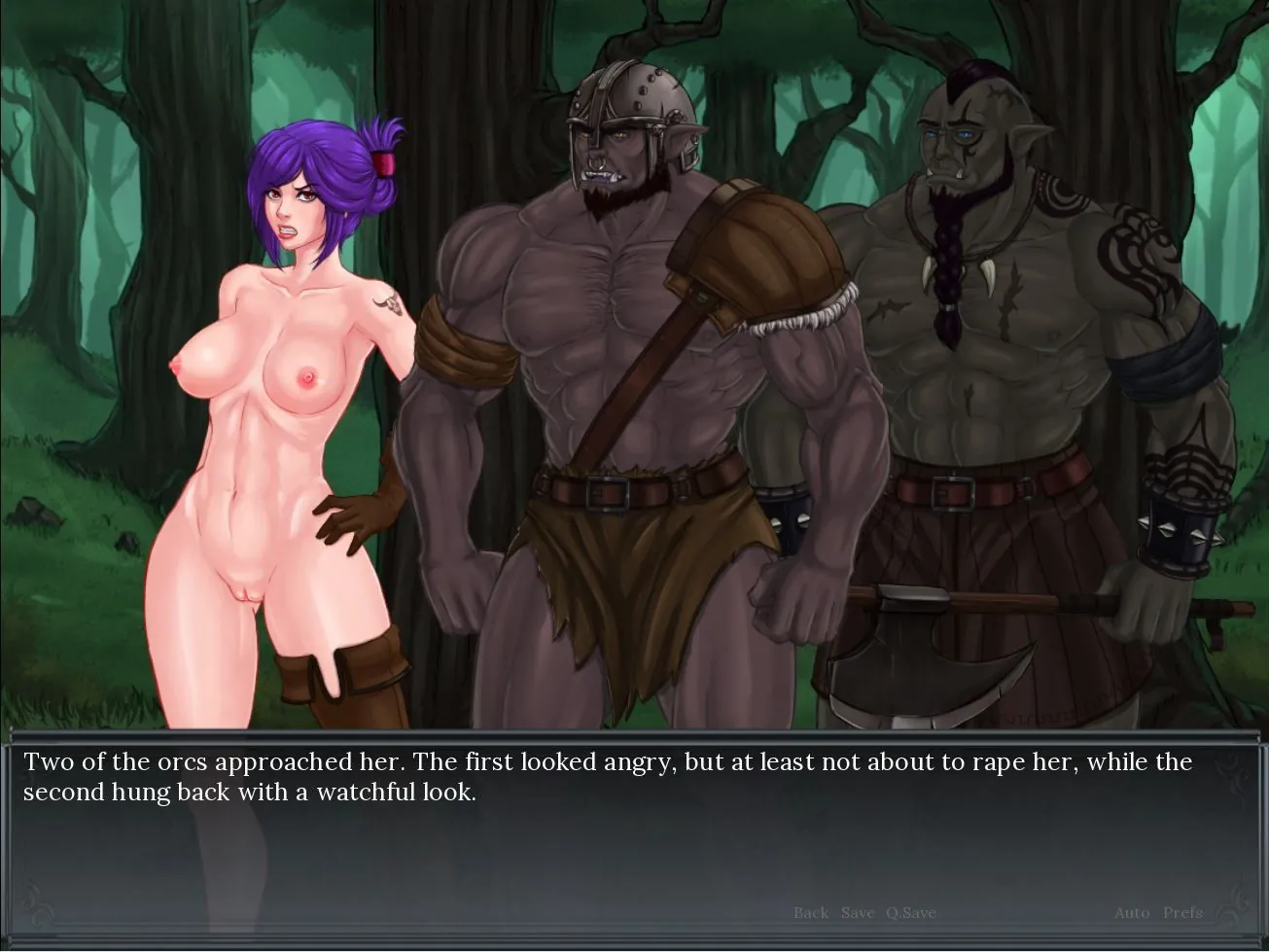
Triangle
Play Triangle
Triangle review
Explore the Story, Gameplay, and Features of Triangle by Neverlucky
Triangle is a 3D adult visual novel developed by Neverlucky, released in 2019. The game centers on a 35-year-old man navigating complex relationships with his girlfriend Sarah and a new character, Jenny, who moves in after a tragic event. This article explores the game’s storyline, gameplay features, and what players can expect from this immersive experience. Whether you’re curious about the narrative or want practical tips on playing, this guide covers everything you need to know about Triangle.
Understanding the Story and Characters of Triangle
Diving into Triangle feels like stepping into a beautifully crafted, emotional whirlwind. 🌀 I remember the first time I booted up this visual novel, expecting a simple story, but what I got was a deeply immersive experience that stuck with me for days. The Triangle game characters are so well-written, they feel like real people, and the Triangle visual novel story tackles complex emotions in a way that’s both raw and relatable. If you’re curious about what makes this game tick, you’re in the right place. Let’s peel back the layers and explore the heart of this narrative masterpiece. ❤️
Who Are the Main Characters?
At the core of Triangle are three incredibly nuanced individuals whose lives intertwine in ways that are both beautiful and heartbreaking. 🎭 As a player, you step into the shoes of a 35-year-old protagonist who’s trying to navigate life’s complexities, and let me tell you, his journey is one you won’t forget. I found myself genuinely caring about his decisions, almost as if I were living his life.
His girlfriend, Sarah, is a pillar of strength with her own vulnerabilities. She’s caring and devoted, but there’s a depth to her that unfolds as you progress. Then there’s Jenny, the 18-year-old daughter of Sarah’s late friend, who brings a mix of innocence and turmoil into their lives. The Triangle relationship dynamics between these three are the engine that drives the entire Triangle game narrative forward. I recall one playthrough where I was so torn between supporting Sarah and understanding Jenny’s perspective that I had to pause and reflect on my own values. 😔
Here’s a quick overview of the main Triangle game characters to help you get acquainted:
| Character | Brief Description | Role in the Story |
|---|---|---|
| The Protagonist | A 35-year-old man grappling with responsibility and emotional connections. | You guide his choices, shaping the story’s direction and outcomes. |
| Sarah | His supportive girlfriend, dealing with grief and new challenges. | Represents stability and past commitments, often testing your loyalty. |
| Jenny | An 18-year-old seeking guidance after losing her mother. | Introduces conflict and growth, pushing the protagonist to confront his morals. |
💡 Pro Tip: Pay close attention to small dialogues—they often hint at deeper emotions that influence later Triangle game plot choices.
Getting to know these Triangle game characters isn’t just about reading their backstories; it’s about feeling their struggles. The way their personalities clash and complement each other makes every interaction meaningful. In my first run, I underestimated how Jenny’s innocence would affect Sarah, and it led to some tense moments that I hadn’t anticipated. This is where the Triangle emotional storyline truly shines, making you invested in every decision. 🌟
What Is the Central Plot?
The central plot of Triangle revolves around the evolving relationships between the protagonist, Sarah, and Jenny, set against a backdrop of grief, loyalty, and self-discovery. 📖 When Sarah’s close friend passes away, Jenny enters their lives, and what starts as a gesture of support quickly spirals into a web of emotional conflicts. The Triangle visual novel story isn’t about grand adventures; it’s about the quiet, intense moments that define human connections.
As the story unfolds, you’ll witness how the protagonist balances his commitment to Sarah with his growing bond with Jenny. I remember a particular scene where Sarah expresses her fears about the future, and it hit me how realistic the Triangle relationship dynamics are. It’s not just about love triangles in the cliché sense; it’s about the moral dilemmas and emotional weight that come with caring for multiple people. 😢
The Triangle game narrative is paced perfectly, allowing you to soak in each character’s perspective. One of the most gripping aspects is how the plot doesn’t force drama—it lets it emerge naturally from the characters’ interactions. For instance, a simple conversation over dinner can reveal hidden tensions that set the stage for major turning points. This organic flow is what makes the Triangle emotional storyline so compelling; it mirrors real-life complexities where there are no easy answers.
Throughout the game, you’ll encounter moments that challenge your empathy. In my experience, I had to rethink my approach multiple times because the story made me care about everyone involved. The Triangle visual novel story excels at making you feel the consequences of every action, ensuring that you’re not just a spectator but an active participant in this emotional journey. 🛤️
How Do Player Choices Affect the Story?
If there’s one thing that sets Triangle apart, it’s how your decisions shape the entire experience. 🎮 The Triangle game plot choices are seamlessly integrated into the narrative, making you the architect of the story’s direction. From small, seemingly insignificant dialogues to major moral crossroads, every choice carries weight. I learned this the hard way when a casual remark I made early on snowballed into a dramatic confrontation later.
The branching Triangle game narrative means that no two playthroughs are the same. Depending on your actions, you can unlock various Triangle story endings, each offering a unique resolution to the characters’ arcs. For example, favoring Sarah’s needs might lead to a stable, bittersweet conclusion, while empathizing more with Jenny could open up a path filled with unexpected growth and challenges. 🧩
Here are some practical ways your choices influence the Triangle relationship dynamics:
- Dialogue Options: What you say in conversations can strengthen or weaken bonds. In one playthrough, I chose to be brutally honest with Jenny, which alienated her but brought me closer to Sarah.
- Actions and Prioritization: Deciding who to support in conflicts can alter the story’s trajectory. I once prioritized helping Jenny with her personal issues, which led to Sarah feeling neglected and a subsequent argument that changed the entire tone of the game.
- Timing and Attention: How you allocate your time between characters affects their development and the overall Triangle emotional storyline. Skipping a heart-to-heart with Sarah to comfort Jenny might seem minor, but it can ripple into significant plot shifts.
🌟 Insight: Don’t be afraid to replay sections—exploring different Triangle game plot choices reveals layers of the story you might miss otherwise.
I’ve spent hours experimenting with various decisions, and each time, the Triangle story endings felt earned based on my inputs. One ending left me with a sense of closure, while another had me questioning if I’d made the right calls. This level of engagement is what makes the Triangle game narrative so rewarding; it respects your agency and makes the emotional payoff deeply personal. Whether you’re aiming for harmony or embracing the chaos, your journey through Triangle will be uniquely yours. ✨
Triangle offers a compelling blend of narrative depth and interactive gameplay, inviting players to explore complex emotional relationships through meaningful choices. Its detailed characters and branching storylines make it a memorable experience for fans of adult visual novels. If you’re interested in immersive storytelling combined with engaging gameplay, Triangle is worth exploring. Dive into the game to discover the paths your decisions can lead to and experience the full scope of its narrative.












